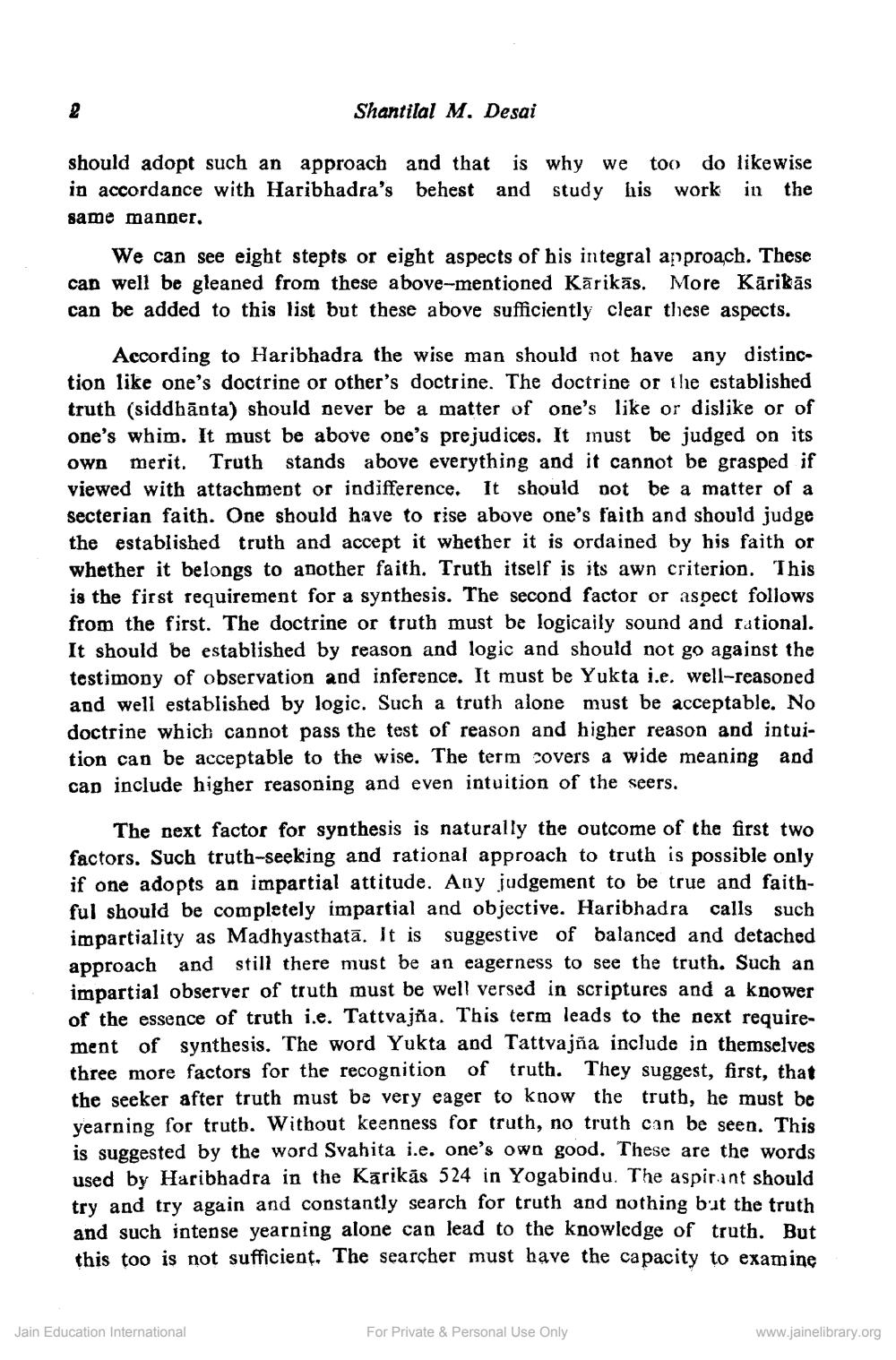Book Title: Sambodhi Author(s): Dalsukh Malvania, H C Bhayani, Nagin J Shah Publisher: L D Indology Ahmedabad View full book textPage 4
________________ Shantilal M. Desai should adopt such an approach and that is why we too do likewise in accordance with Haribhadra's behest and study his work in the same manner. We can see eight stepts or eight aspects of his integral approach. These can well be gleaned from these above-mentioned Kārikās. More Kārikās can be added to this list but these above sufficiently clear these aspects. According to Haribhadra the wise man should not have any distinction like one's doctrine or other's doctrine. The doctrine or the established truth (siddhānta) should never be a matter of one's like or dislike or of one's whim. It must be above one's prejudices. It must be judged on own merit. Truth stands above everything and it cannot be grasped if viewed with attachment or indifference. It should not be a matter of a secterian faith. One should have to rise above one's faith and should judge the established truth and accept it whether it is ordained by his faith or whether it belongs to another faith. Truth itself is its awn criterion. This is the first requirement for a synthesis. The second factor or aspect follows from the first. The doctrine or truth must be logicaily sound and rational. It should be established by reason and logic and should not go against the testimony of observation and inference. It must be Yukta i.e. well-reasoned and well established by logic. Such a truth alone must be acceptable. No doctrine which cannot pass the test of reason and higher reason and intuition can be acceptable to the wise. The term covers a wide meaning and cap include higher reasoning and even intuition of the seers. The next factor for synthesis is naturally the outcome of the first two factors. Such truth-seeking and rational approach to truth is possible only if one adopts an impartial attitude. Any judgement to be true and faithful should be completely impartial and objective. Haribhadra calls such impartiality as Madhyasthatā. It is suggestive of balanced and detached approach and still there must be an eagerness to see the truth. Such an impartial observer of truth must be well versed in scriptures and a knower of the essence of truth i.e. Tattvajña. This term leads to the next requirement of synthesis. The word Yukta and Tattvajña include in themselves three more factors for the recognition of truth. They suggest, first, that the seeker after truth must be very eager to know the truth, he must be yearning for truth. Without keenness for truth, no truth can be seen. This is suggested by the word Svahita i.e. one's own good. These are the words used by Haribhadra in the Karikās 524 in Yogabindu. The aspirant should try and try again and constantly search for truth and nothing but the truth and such intense yearning alone can lead to the knowledge of truth. But this too is not sufficient. The searcher must have the capacity to examine Jain Education International For Private & Personal Use Only www.jainelibrary.orgPage Navigation
1 2 3 4 5 6 7 8 9 10 11 12 13 14 15 16 17 18 19 20 21 22 23 24 25 26 27 28 29 30 31 32 33 34 35 36 37 38 39 40 41 42 ... 304
